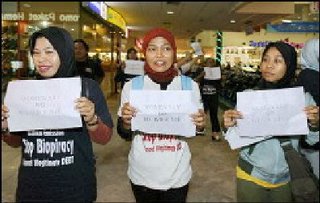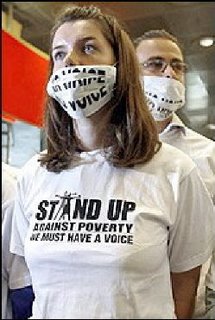HARRY Lee’s Vision for SINGAPORE – FITTEST Rules - a NATION of ROBOTS – Controlled & Fenced up-No INDIVIDUALITY; No SPONTANIETY; Living in FEARS
 Lee Kuan Yew one-hour head-to-head dialogue organised by the institution that bears the MM's name - the
Lee Kuan Yew one-hour head-to-head dialogue organised by the institution that bears the MM's name - the The social engineering that is taking place in
Many organizations and institutions assumed they have reached the perfect state – a state of fulfillment beyond which there is no further growth, but no such state exists. And in general they do not see their own “mistakes or shortcomings”.
To grow and develop it is absolutely necessary to consider all the feedbacks and suggestions.
Their institutions and disciplines are composed of individuals, each restrained by limiting ideas about their OWN private reality; and so it is with private reality that we will begin and always return, period.
The
They must learn to trust the people’s natural selves more often. But the many social institutions are set up to fence in the individual, rather than to allow the natural development and growth of the individual. ENP: Firm, yet subtle, in doing things our way - Lee Kuan Yew IT was the day before his 83rd birthday. And the Minister Mentor showed he has lost none of the fire in his belly. Giving his take on 'good governance' before some 260 international policymakers and businessmen, MM Lee Kuan Yew rammed home a simple but forceful point: 'For one very simple reason. They've got a different physical, economic, geographic and strategic base. Their neighbours are different.' He had earlier said, 'I learnt about governance... through actual hard practice,' citing the Japanese Occupation when power 'came from the barrel of a gun' and the tough lessons learnt during the British colonial days. But 40 years of hard-nosed nation-building later - including dealing with explosive issues like race and language - '(Ex-Indonesian President) Habibie called us a little red dot surrounded by green... But after being intimidated... we make it a special red dot.' BEST AND BRIGHTEST Mincing no words, Mr Lee said one key feature of that system is to have the best and brightest running the country. The PAP has such people, he argued, but not the opposition. In fact, if the latter ever came to power, he told his audience, 'We have now reached a very odd stage. The people want the PAP to win the elections but they want an opposition in government to squeeze us and say: Don't up the bus fares, don't up the electricity rates... (So) our problem really is how to get the electorate sufficiently wise and sophisticated to understand that these are the limits.' Seated next to him on stage and listening intently was former They were in a one-hour head-to-head dialogue organised by the institution that bears the MM's name - the At one stage Prof Summers even asked Mr Lee point-blank: But if the PAP is still in power after another 40 years, is that good for 'DON'T TINKER' The MM's reply: 'My hope is that there will be a government that is equal to the job as the PAP was... We have structured the system such that a competent group that gets in will find a machine that works. Don't tinker with it.' Gazing at his audience, he added: 'My ambition is not to preserve the PAP. My ambition, having created this And that includes a government that's 'firm' yet 'subtle' enough to deal with difficult neighbours who want to pressure us to build 'pretty' bridges without giving us 'commensurate benefits', he said in an obvious reference to Malaysia. 'You need a government that will be able to not only have the gumption but the skill to say no in a very quiet, polite way that doesn't provoke them into doing something silly.' Audience members later told The New Paper they were glad the MM was so candid. 'It's vintage Lee Kuan Yew, isn't it?' That was the reaction of American fund manager Brian Hafner, 40. Whether you agree with the MM or not, he added: 'It's refreshing to see someone talk so transparently.' Filipino student Rowie Parungao, 25, felt the session was too short. What about Prof Summers himself? But he fired this parting shot: 'There will always be cultural differences between countries... But I do believe that over time, 'It's my hope that the government over the next half century in As MM Lee celebrates yet another birthday today, he will no doubt respond just as forcefully when the next opportunity comes. ========================================
'My main critics want me to be as liberal, open and contentious and adversarial with the opposition as the West. Free it all up... If
The Harvard don told the media later that he's an admirer of
BATAM,
Ramos, a member of the antiglobalization group Jubilee South, and another Filipino activist were photographed, fingerprinted and then bundled onto a plane back to  Protesters at the he International People's Forum, a three-day meeting held to examine, criticize and ultimately convict by way of mock tribunal the two Washington-based institutions for allegedly worsening the plight of poor people everywhere.
Protesters at the he International People's Forum, a three-day meeting held to examine, criticize and ultimately convict by way of mock tribunal the two Washington-based institutions for allegedly worsening the plight of poor people everywhere.
"I cannot understand the paranoia," she said of
Undeterred, she and her travel partner took a more circuitous route, flying farther south to the Indonesian capital,
"Many ended up not taking the financial risk," said Leo Van Mulekon, a campaign adviser at Oxfam, the international aid and lobbying group, who came to Batam from the
In the end, only about 500 of the 950 people who had been expected managed to make it to the International People's Forum, a three-day meeting held to examine, criticize and ultimately convict by way of mock tribunal the two Washington-based institutions for allegedly worsening the plight of poor people everywhere.
But if
"They upset all of our plans," said Marivic Raquiza, the
"They came armed with only stories, but they were treated like thugs, like common criminals," Raquiza said as a young Indonesian man waddle past, wrapped head-to-toe in a shroud and mourning "the death of democracy."
"Oh, you get used to that," said Raquiza, as a gang of drivers wearing masks painted with the flags of creditor nations pursued the man.
Indeed, looking around the Forum, it was difficult to see what
The most menacing language coming out of the Forum was on the banners hung around the auditoriums and outside the building, like "Debt is Terror!" and "Go to Hell With Your Aid."
As a group of panelists held a session on whether developing countries should pay debts lent to dictators or other undemocratic regimes, a handful of Filipino activists in DayGlo vests emerged outside to mug for a clutch of photographers and chant, "IMF, World Bank, Out, Out, Out!"
Organizers chose this island as an alternative to
Citing security risks and its own laws prohibiting any gathering of more than four people without a permit,
Singapore relents over ban on activists; By John Burton in Singapore
Published: September 15 2006 19:54
Singapore bowed to international pressure on Friday and agreed to allow 22 of 27 banned activists to attend the annual meeting of the International Monetary Fund/World Bank, after Paul Wolfowitz, World Bank president, said the bar on their entry was “unacceptable”.
The move was meant to deflect mounting controversy that had threatened to become a public relations disaster for
Mr Wolfowitz said
participants to the meeting. But it said this week that its decision to prevent some activists from coming also fulfilled its obligation under the agreement to protect the personal security of delegates.
to encourage their participation. More than 160 non-governmental organisations, many of which had been invited, called for a boycott of the meeting. More than 20 activists who attended a dialogue session with the IMF and World Bank heads walked out in protest, demanding that a harder line be taken with the Singaporean authorities.
“This has serious implications for future meetings of international organisations. If the
Chee Soon Juan, a


0 Comments:
Post a Comment
<< Home